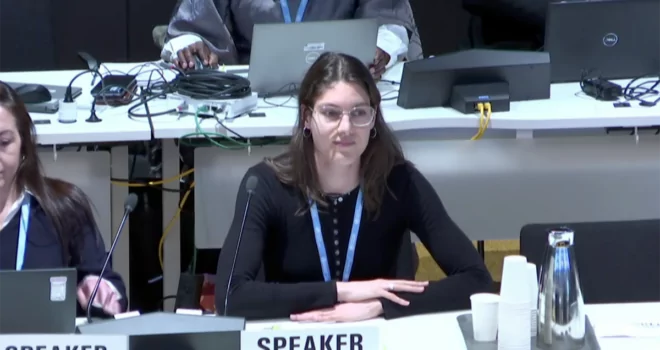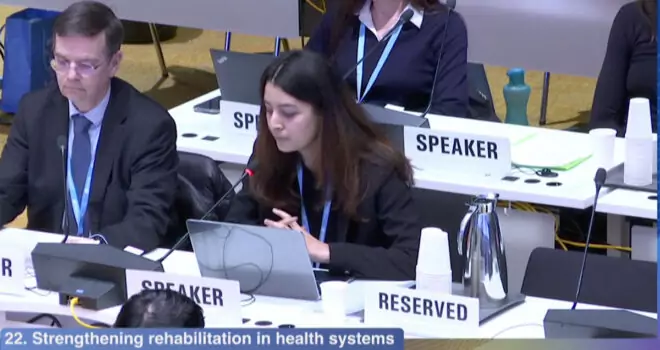This is a statement led by NCD Alliance and the World Heart Federation at the 77 World Health Assembly on Agenda item 13.4
Distinguished delegates,
We welcome the report summarizing WHO’s work to strengthen global governance of health emergency preparedness through the parallel processes of the Working Group on Amendments to the International Health Regulations and the Intergovernmental Negotiating Body (INB).
We express disappointment that the INB was unable to fully conclude negotiations on a Pandemic Agreement prior to the 77th World Health Assembly but are encouraged by plans to continue negotiations through a series of Intergovernmental Working Groups.
The COVID-19 pandemic showed that the high frequency of NCDs, including life-threatening diseases such as cancer, markedly increases the vulnerability of populations.
People living with NCDs also face greater challenges in humanitarian settings where health systems and services may be seriously undermined, and the delivery of essential healthcare and supplies of medicines and products is often disrupted. This is particularly the case for more marginalized and vulnerable populations who experience multiple and intersecting health inequities, including children, youth, women and girls, persons with disabilities, and older people living with NCDs.
We urge Member States to:
Recognize people living with NCDs as a vulnerable population across WHO’s work in health emergencies, fully integrate essential NCD services into emergency responses, including for marginalized groups, and build resilient models of people-centered primary care that are affordable and accessible for all.
We recommend that continued negotiations on the WHO Pandemic Agreement:
– Retain the principle of equity as its key driver
– Recognize that persons with NCDs are among those likely to be most severely affected by pandemics
– Retain the commitment to developing, strengthening, and maintaining resilient health systems, with a view to achieving UHC and fostering service continuity during crises
– Recognize the critical importance of protecting, investing in, and retaining an adequate, skilled, and trained health and care workforce to ensure the continuation of essential health services, particularly for people living with NCDs, during pandemic preparedness, response, and recovery
– Demonstrate support for civil society’s role in ensuring equitable pandemic preparedness, prevention, and response
Thank you.


